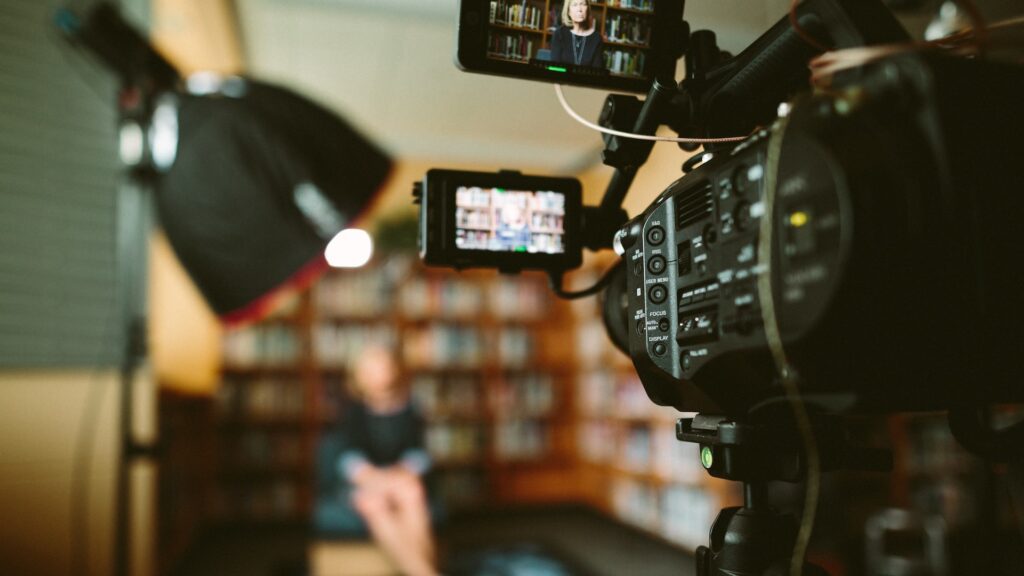Music licensing is the process by which music is placed in various media, such as films, television shows, commercials, and video games.
It is an important source of revenue for artists and composers, as well as a valuable marketing tool for their work. However, getting your music licensed can be a difficult and competitive process, requiring a good understanding of the industry and the needs of different media outlets.
In this article, we will provide tips and techniques for getting your music featured in film, TV, and advertising. We will discuss the basics of music licensing, the importance of creating high-quality music, and the steps you can take to increase your chances of success.
Understanding Music Licensing
Music licensing is the process of securing the legal rights to use copyrighted music in a media production.
The most common types of music licenses are synchronization (sync) licenses and master use licenses. Sync licenses are obtained for the use of music in combination with visual media, while master use licenses are obtained for the use of pre-recorded music in a production.
When a media producer wishes to use music in their production, they must obtain permission from the copyright owner of the music. This is typically done through a licensing agreement, which outlines the terms of use, the fees to be paid, and other important details.
The Importance of High-Quality Music
The quality of your music is perhaps the most important factor in securing a music licensing deal. Media producers are always looking for high-quality music that fits their specific needs and requirements. This means that your music must be well-produced, well-written, and able to stand out in a crowded field of competitors.
To create high-quality music, it is important to invest in good equipment, such as a high-quality microphone, a good audio interface, and high-quality software. You should also consider hiring professional musicians and producers to help you create the best possible sound.
Another important factor is the style and genre of your music. Media producers are often looking for music that fits a specific mood or theme, so it is important to understand the needs of different media outlets and tailor your music accordingly.
For example, if you are interested in licensing your music for use in commercials, you may need to create upbeat, catchy songs that can grab the attention of viewers.
Tips and Techniques for Getting Your Music Licensed
Now that you understand the basics of music licensing and the importance of high-quality music, let’s discuss some tips and techniques for getting your music licensed.
1. Build Relationships
One of the most effective ways to get your music licensed is to build relationships with media producers, music supervisors, and other industry professionals.
Attend networking events, conferences, and music festivals to meet and connect with people who can help you get your music heard. You can also use social media platforms like LinkedIn to reach out to industry professionals and showcase your music.
2. Use Music Licensing Libraries
Music licensing libraries are online databases of pre-cleared music that are available for use in media productions. These libraries are often used by media producers and music supervisors to find music for their projects.
By submitting your music to these libraries, you can increase your chances of getting your music licensed. Some popular music licensing libraries include AudioJungle, Musicbed, and Artlist.
3. Submit Your Music to Music Supervisors
Music supervisors are responsible for selecting and licensing music for use in films, television shows, and other media productions. By submitting your music directly to music supervisors, you can increase your chances of getting your music licensed. You can find contact information for music supervisors online or through industry directories such as the Guild of Music Supervisors.
4. Create a Compelling Demo Reel
A demo reel is a short video or audio clip that showcases your best work. It is often used by media producers and music supervisors to quickly assess the quality and suitability of your music for their projects.
To create a compelling demo reel, choose your best songs and create a seamless mix that showcases the diversity and quality of your music. Be sure to include a variety of genres and moods that can appeal to different media outlets.
5. Understand the Needs of Different Media Outlets
Different media outlets have different needs and requirements when it comes to music licensing. For example, music used in commercials must be catchy and memorable, while music used in films must fit the mood and theme of the story.
By understanding the needs of different media outlets, you can tailor your music to better fit their requirements and increase your chances of getting licensed.
6. Be Persistent
Music licensing is a competitive and challenging field, and it may take some time and persistence to get your music licensed. Keep submitting your music to different outlets, attend industry events, and continue to build relationships with industry professionals.
Don’t get discouraged if you receive rejections or no response at all. Keep creating high-quality music and refining your approach, and eventually, you will see success.
Final Thoughts
Music licensing can be a lucrative and rewarding way to promote your music and generate revenue. To succeed in this field, it is important to create high-quality music, build relationships with industry professionals, and understand the needs of different media outlets.
By following these tips and techniques, you can increase your chances of getting your music licensed and achieving success in the music industry.

